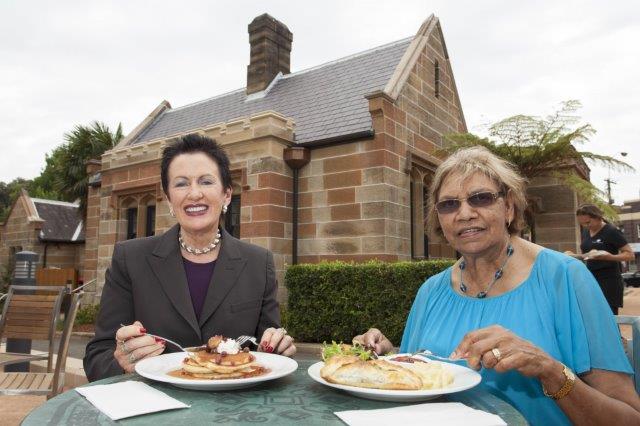
A new procurement paradigm is changing the way the federal government does business and Australia’s local councils look set to follow the Commonwealth’s lead.
Since June 2015, federal government departments and agencies have had a purchasing target of 0.5 per cent of domestic government contracts to go to small and medium Indigenous companies in 2015-16, rising to 3 per cent by 2019-20. Contracts may be directly with Indigenous enterprises, subcontracts or joint ventures.
Although there are no targets set for local (or state) government, many local councils have proactively increased their Indigenous procurement spend, some of them through their Reconciliation Action Plans.
City of Sydney Council has a well-developed approach to Indigenous procurement. The council won an award for engaging with and mentoring Indigenous businesses last year and was a founder member of Indigenous business certifier Supply Nation.
The City’s Procurement Manager, Ian Rudgley, became an indigenous procurement champion after attending aboriginal cultural awareness training.
“It was a paradigm shift in my thought process,” Mr Rudgley said. “I understand their problems from a commercial, business point of view and it really gave me a better idea of how to engage and help them. I was treating Aboriginal start-ups the same as other businesses [before]. It had a profound effect on me.”
Mr Rudgley said he learned to work within some of the restrictive local government procurement rules and to mentor and support Indigenous businesses.
These days City of Sydney deals with around 20 Indigenous companies certified by Supply Nation in areas including design, catering, legal advice and stationary supplies.
“I think each organisation needs to be committed. We certainly are at the city,” said Mr Rudgley. “Our executive, councillors and the CEO are all committed to it. It is part of my performance plan targets to get Aboriginal companies on board.
“We are just scratching the surface of something that I absolutely believe is going to be a very exciting time in the next two or three years and any procurement person that’s not on board should have a serious think about why they work in local government.”
Mr Rudgley’s number one piece of advice to local councils is to meet suppliers and understand their business and who they’re dealing with and thrash out important issues such as understanding the supply chain and cash flow. For example, having an agreement to turn payments around quickly: “to get them into a position where they can actually do business with us.”
“You can’t judge on experience [of an emerging business], you need to work with them early to have a good understanding of what they can provide,” he said. “Get them in, have a chat with them, see how you can help and develop a process that works. This needs to be driven by procurement professionals.”
Sometimes you need to drive support processes that work for both sides. For instance, if you hire consultants mention you are looking for indigenous businesses or ask how many Indigenous workers they have and what training they offer.
Having recommended targets is also helpful, “if you want to do it seriously” suggested Mr Rudgley.
He is, however, unwilling to back compulsory targets.
“If you make it mandatory for local and state government my gut feeling is that suppliers themselves wouldn’t be able to cope. You can inundate a company; they might get involved with one client and then go broke.”
It is vital to make other council staff aware of your council’s Indigenous procurement strategy and useful to compile a catalogue of the Indigenous companies you have worked well with.
Mr Rudgley also suggested mitigating the risk of using a new supplier by having smaller contracts with multiple suppliers.
One of the City’s Indigenous contracts is with a hospitality training company that runs Gardener’s Lodge Cafe in Victoria Park. The company trains Indigenous catering staff and serves up bush foods like warrigal greens, lemon myrtle, quondong and munthari berries, as well as doing some of the council’s catering.
“I see these young Aboriginal kids coming in and I see their enthusiasm. I think it’s brilliant,” Mr Rudgley said.
Boosting indigenous procurement – tips for councils
Understand how an Indigenous emerging business works and their challenges
Bring them in for a chat
Consider cash flow
Spread your risk, start small
Get buy-in from senior management
Promote the strategy internally
Send procurement staff on Aboriginal cultural awareness training
Set targets
Contact bodies such as Indigenous Business Agency and Indigenous chambers of commerce





Great news. Great story.
A small grammatical point …Aboriginal should always be capped when referring to Australian Aborigines (as opposed to aboriginal for indigenous peoples of other countries).
Thanks Alexis.
Good point. I’ve made the necessary changes. Cheers, Marie.
Congratulations City of Sydney!
If all local councils follow your lead we will see a significant impact on the growth of Indigenous Businesses in local communities across NSW. Thank you for your positive actions to promote engagement of Indigenous Businesses in the Supply Chains of Local Council and Local Business.
Deb Barwick
Chairperson, NSW Indigenous Chamber of Commerce (NSWICC)
We would like to propose following City of Syd’s example in Aboriginal procurement policy at Waverley Council…. and We Appreciate how CoSyd’s naming the Invasion was applauded at the Redfern Treaty Talk last night Monday14March2016….
and We’d like to catchup with Aboriginal Chamber of Commerce to yarn about profiling these initiatives at the next Local Government Aboriginal Network Conference ,
Thanks to Dave Beaumont at CoS for this suggestion ,
THANX Indigenous Greens Councillor dominicWYkanak ,
Chairman Eastern Region Local Government Aboriginal Torres Strait Islander Forum, 0499291333